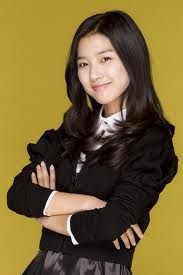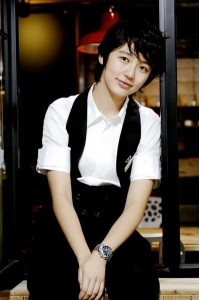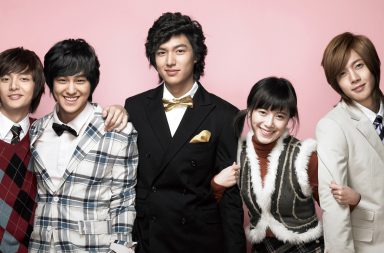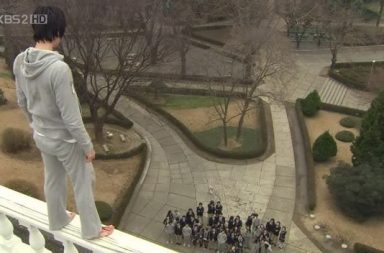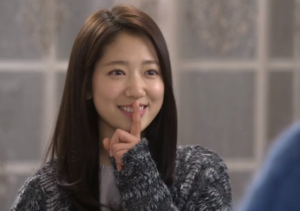 Oh, lord, Plain Janes. In dramas, female characters have a choice to make. Pretty or principles. Good looks or a good person. A stunning body or a sweet personality. Women cannot be attractive inside and out. This trope is pervasive, too. In the last 8 months, there’ve been monster hits showcasing both sides– The Heirs and You Who Came From The Stars. Seeing this dichotomy time and time again leads to one logical question: why?
Oh, lord, Plain Janes. In dramas, female characters have a choice to make. Pretty or principles. Good looks or a good person. A stunning body or a sweet personality. Women cannot be attractive inside and out. This trope is pervasive, too. In the last 8 months, there’ve been monster hits showcasing both sides– The Heirs and You Who Came From The Stars. Seeing this dichotomy time and time again leads to one logical question: why?
The easy answer is that having a plain lead is a ubiquitous drama shorthand. If the lead female is described as ‘plain’, it allows the audience to draw a host of other conclusions based on previous dramas– she’s sweet, helpful, and not great in school. These can come or go but one thing a plain lead is, without fail, is poor.
This trope was codified by Boys Over Flowers, and to a lesser extent, Coffee Prince. A plain lead means that the lead couple will come from vastly different statuses. This creates a lion’s share of conflict, when the lead man has to choose between his equal- rich, ravishing, and rude- or the girl he truly loves- poor, plain, and practically perfect.
To be fair, there is a logic to this specific variation. Wealthy characters always spend thousands of won on make-up, clothes, and plastic surgery to ensure they look their best. The lower-class girls lack both the money and time of their wealthier counterparts. Thus, even if both girls look the same make-up free and in a towel, the rich ones are seen as prettier.
This is actually acknowledged in Boys Over Flowers. When Yi-jeong takes out Ga-eul, whom he derided as a ‘plain country bumpkin’, he gives her a quick makeover first. Decked out in designer threads and professionally done make-up instead of work clothes, Ga-eul looks stunning– which Yi-jeong has no qualms about telling her. In fact, most dramas of this type– The Heirs, Playful Kiss, Coffee Prince– have a makeover scene for this exact purpose.
Of course, explaining the split of plain and pretty as a shorthand is the easy answer. It makes sense, but no shorthand is as utterly omnipresent as the idea that girls are nice or nice-looking, with no middle ground. The other half of the explanation stems not from who dramas are made by, but who they’re made for: women.
Something that goes largely unnoticed is that women don’t like other all women, just as men don’t like all other men. However, while it is publicly acceptable for men to show their dislike for others, it’s not acceptable for women to do the same. Women in cultures the world over are taught to be gentle, kind, proper ladies, who get along with everyone and never have a disagreement over anything. Thus, women show their dislike for others with gossip, whispers, and internet comments.
These patterns of behavior have been passed down from mother to daughter for generations. Women are taught to hold those who are perceived as having more in contempt, and that for every bonus another women has, she must have a flaw. Multiple studies have found that women are just as likely as men, if not more likely, to slut-shame a fellow woman based on her clothes and sexual history. Women are not taught to see a beautiful woman and think “a similar hairstyle would really flatter my bone structure.” Instead, women are taught to label beautiful, confident women as skanks, sluts, and whores.
After all, women have spent centuries with exactly one valuable commodity– their appearances. By spreading rumors and passing judgment based on genetic traits like breast size, it decreased another woman’s value and increased the originators’ own. These views have continued into the modern day, with women feeling irrational dislike towards women they see as prettier than themselves, for reasons they cannot pin down. No one thinks that beautiful women must be bitches on a conscious level, but it’s something women are conditioned to believe subconsciously.
This reality of women feeling threatened by other women is the still-pumping heart of Plain Janes. By taking a beautiful actress, grunging her down, and giving her a loveable personality, it allows the lead characters to be seen as likeable by the target audience of women.
It’s not that all women feel overtly threatened by pretty women, or that women live their lives deciding to feel that anyone more beautiful than themselves is a bitch. It’s ingrained by actions, by watching those older than themselves, becoming these petty things that can’t be explained– “I don’t know why I dislike that singer, I just do.” It’s starting to fade, but it hasn’t gone away, and neither have Plain Janes.
(Images via KBS, MBC)
